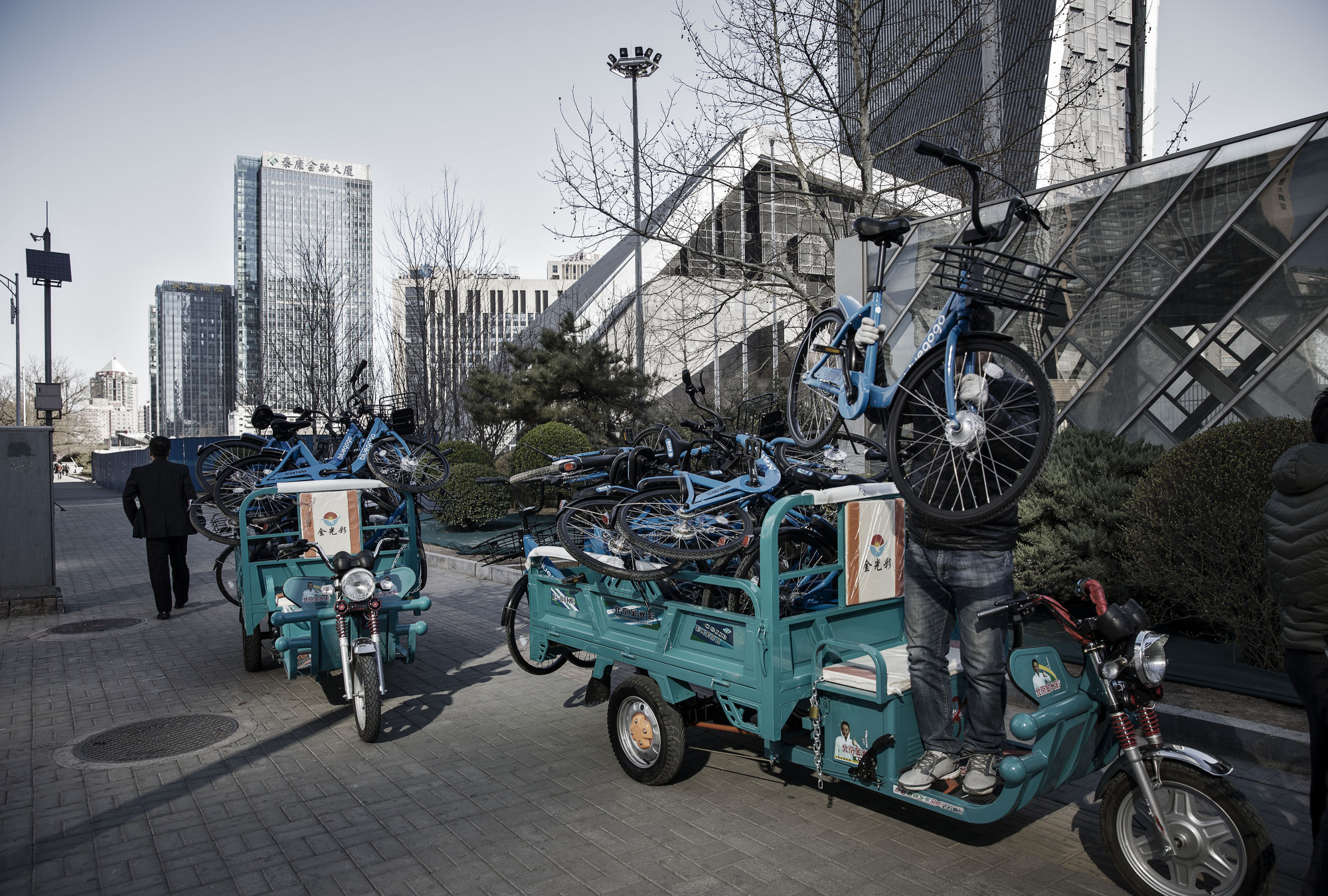It's been an excellent few months for startups in China's sharing economy. Perhaps too good. The bike-sharing industry landed its first unicorn, and companies that allow phone users to share battery packs have raised at least $150 million in recent weeks. But at the same time, one startup recently announced that it expects to share at least 500,000 umbrellas in Guangzhou this year while a Jiaxing-based basketball-sharing company is getting positive coverage in the state media. No doubt, given the hype, they won't have trouble securing funding.
It's easy to mock such businesses. (Just ask Kobe Bryant if anyone wants to share a basketball.) But even as money is wasted and companies merge or go bust, the sharing model looks to have a brighter future in China than almost anywhere else.
Homegrown ride-sharing and home-sharing companies emerged in China early this decade, shortly after Uber Inc. and Airbnb Inc. launched in the United States. The industry has boomed ever since. According to the Chinese government's sharing-economy research office (there really is such a thing), 600 million Chinese conducted business worth $500 billion in the sector in 2016, up 103 percent over 2015.



